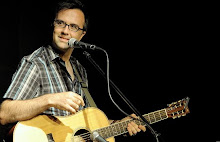It's always nice to find something that is current that I actually connect with. In these last couple of weeks I've taken some time off of the blog and used the extra time to check out some recent guitar-related releases. I mentioned the new Jeff Beck in an earlier post. In a related vein, I'm just been listening to John Scofield's Piety Street
I'm no Scofield expert, but some of the qualities that I identify in his playing on this record are:
1. A deep knowledge of blues licks, many of them extended into odd little harmonic places. Scofield seems to really be at home playing earthy New Orleans style gospel. His phrasing and sensitivity are really outstanding on this record.
2. An interest in tone manipulation through articulation - pick angle, velocity - and tricks like playing close to the bridge for a trebly, bell-like attack.
3. The sound of heavy strings. I hear a bell-like "inharmonic" sound in some of Sco's notes, which suggest that he is using a plain G string that has been made so thick that it has taken on the harmonic properties of a metal bar - upper harmonics are out of tune, which gives the notes a slight chorusing sound. He does in fact use a set of strings that begin with a .013 high E and a plain third. I've experienced this myself by experimenting with heavy gauge strings. Rock and blues guitar after 1967 needs a plain third string - the wound G strings just don't bend right. The outcome of all of this is that Scofield has that rare thing among jazzers: an awesome tone.
The band sounds really quite great - Porter Jr., Fataar, Cleary and Scofield cook effortlessly, and the singers add a different kind of performing frame and, oh yes, the lyrics to these songs, which include "Sometimes I Feel Like A Motherless Child" and "His Eye Is On The Sparrow." The singing is a bit faceless for me on first listens, but it's not distracting either. This album was recorded in New Orleans in 2008, just after Hurricane Gustav.
This record does not evince a traditional gospel approach, although there are many elements in common - the hard swinging, the use of combined piano and organ and tambourines (both used sparingly on Piety Street). Fataar's drumming has something of a West Coast coolness which keep things from getting bombastic. My overall impression is that Piety Street is that it must have been a blast to record, with some of the top musicians in the U.S. coming together to re-interpret an old repertoire of black gospel, drawn from the recorded output of singers like Mahalia Jackson.
This band (with Terence Higgins replacing Fataar) is in fact playing tonight at the Toronto Jazz Festival, and I'm heading down there to do a Talkback segment with JAZZ FM at six. I'll report back.












No comments:
Post a Comment